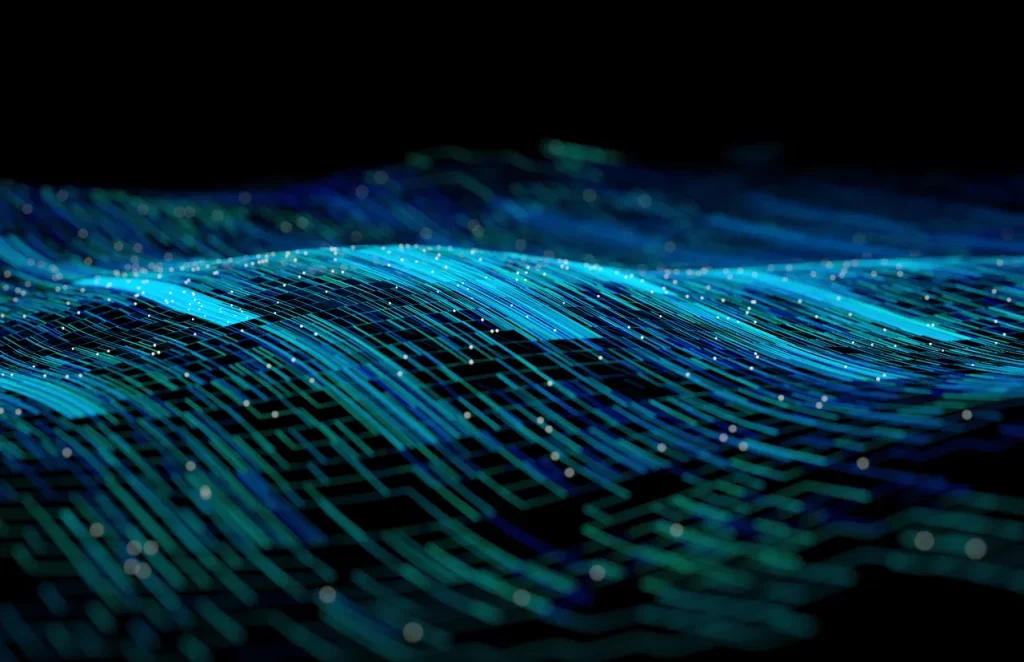Introduction:
The rise of artificial intelligence (AI) technologies in recent years has brought about dramatic changes across various industries, including content creation. AI tools are now capable of generating text, images, music, videos, and even complex works of art with little to no human input. This growing ability of AI to produce creative content has led to a critical question: Will AI-generated content pose significant challenges to copyright law?
Copyright law has long been designed to protect the rights of creators of original works by granting them exclusive rights to their creations. However, the ability of AI systems to autonomously generate content raises a number of legal and ethical questions, particularly around ownership, authorship, and accountability. As AI-generated works become more prevalent, it is essential to reconsider how traditional copyright law applies to these new types of creations.
This article will explore the potential challenges that AI-generated content presents to copyright law, considering the issues of authorship, ownership, originality, and legal responsibility. We will also discuss potential solutions and future developments in copyright law that may address these challenges.
1. AI and the Concept of Authorship in Copyright Law
One of the fundamental tenets of copyright law is the notion of authorship. Copyright protection typically requires that a work be created by a human author. Under existing laws, the person who creates an original work is generally recognized as its author, and they are granted the exclusive rights to that work.
However, when an AI system generates content autonomously, the question arises: Who is the author? Is it the AI system itself, the person who created or programmed the AI, or the entity that owns the AI tool? This issue becomes increasingly important as AI systems become more advanced and capable of producing sophisticated creative works.
1.1. AI as a Tool Versus AI as an Author
Many legal experts argue that AI should be viewed as a tool rather than an independent creator. In this view, the human who uses the AI tool to generate content would be considered the author. This approach mirrors the traditional understanding of tools like computers, cameras, or other technologies used in the creation of art. The AI, in this context, would be seen as a medium for human creativity rather than a creator in its own right.
However, as AI systems become increasingly autonomous, the line between human creator and machine-generated work becomes blurrier. For example, advanced AI models such as GPT-3 (used to generate text) and DALL·E (for creating images) have shown that AI can produce content with little human intervention, which raises questions about whether the human user can truly be considered the sole author.
1.2. Legal Precedents and Human Involvement
In some legal systems, the law explicitly requires human authorship for copyright protection. For instance, in the United States, the Copyright Office has made it clear that works created by non-human agents, including AI systems, cannot be granted copyright protection. This position underscores the need for a human to be involved in the creation of a work for it to be eligible for copyright.
Yet, the current framework may need to evolve to address situations where AI is responsible for generating a work with minimal or no human input. As AI-generated content becomes more common, it may become necessary for lawmakers to clarify how authorship applies when a machine is responsible for the majority of the creative process.
2. Ownership of AI-Generated Content
Another critical issue arising from AI-generated content is the question of ownership. Copyright law grants exclusive rights to the author of a work, including the right to reproduce, distribute, perform, and modify the work. But if an AI is responsible for creating a work, who holds these rights? Is it the person who owns the AI system, the programmer who created the algorithm, or the AI itself?
2.1. Ownership by the Programmer or User
Currently, in many jurisdictions, the ownership of AI-generated content tends to be attributed to the human programmer or the entity that owns the AI. For example, if a company uses an AI tool to generate content for its business, the company may be considered the rightful owner of the work. This is similar to how copyright applies to works created by employees in the course of their employment (i.e., “work made for hire”).
However, the complexity arises when considering the role of the AI in the creative process. If an AI generates a highly original and complex work with minimal human input, it may be difficult to establish clear ownership. Is it fair for a company to claim ownership of content generated by an AI system it owns, even if the AI was largely autonomous in its creation?
2.2. The Role of AI Ownership in Content Creation
In the case of open-source AI models or collaborative AI projects, ownership becomes even more complicated. If an AI system is freely available for use and generates content for multiple users, who holds the rights to the resulting work? Should the AI be considered a co-author of the work? And if an AI is trained using existing copyrighted works, how should ownership and copyright attribution be managed?
These questions are particularly important in the context of intellectual property law, as ownership disputes over AI-generated works could become more common as AI tools become more widely accessible.
3. Originality and AI-Generated Content
Another core principle of copyright law is the requirement of “originality.” For a work to be eligible for copyright protection, it must be original and exhibit some level of creativity. AI systems that generate content by processing large datasets and following algorithms may raise questions about whether the content they produce can truly be considered original.
3.1. The Challenge of Originality in AI-Generated Works
AI systems generate content based on patterns they learn from existing data. For example, a text-generating AI like GPT-3 is trained on a massive corpus of text and generates new text by predicting the most likely sequence of words based on that training data. While the output may seem original, it is inherently derivative of the data used to train the AI.
In traditional copyright law, originality is a key criterion, meaning that a work must be the product of human creativity. However, AI-generated works might challenge this requirement, as they are not created through human imagination but through statistical modeling and pattern recognition. Some critics argue that AI-generated content lacks the “creative spark” that comes from human authorship, while others assert that the originality requirement should be expanded to account for the novel ways in which AI can combine and remix existing ideas.
3.2. Derivative Works and AI’s Use of Existing Content
Another issue related to originality is the use of existing copyrighted works to train AI systems. AI models, particularly those that generate creative content, often rely on large datasets that include works protected by copyright. This raises the question of whether the AI’s output constitutes a “derivative work” of the original copyrighted material, and whether the owner of the original work has rights over the AI-generated output.
For example, if an AI generates a painting that is heavily influenced by the style of a famous artist, does the artist’s estate retain any claim over the AI-generated artwork? Similarly, if an AI generates a song based on a dataset of music compositions, should the original composers have any rights to the new music?

4. Ethical and Legal Implications of AI in Copyright Law
As AI continues to evolve, its ability to generate content with minimal human oversight presents significant ethical and legal challenges. Several concerns must be addressed:
4.1. Fair Use and AI-Generated Content
The concept of fair use is central to copyright law, allowing for limited use of copyrighted material without permission under certain circumstances. However, if an AI system generates content based on copyrighted material, it may blur the lines between fair use and infringement. If AI systems are trained on large databases of copyrighted works, there may be concerns about whether this constitutes an infringement, especially when the output closely resembles the original works.
4.2. Accountability for Infringements
AI-generated content also raises questions about accountability. If an AI system generates content that infringes on someone’s copyright, who is responsible? Is it the developer of the AI tool, the user who employs the AI, or the AI system itself? Determining liability for AI-generated infringement will be a complex legal issue, as it may not be clear who is at fault when an AI is the primary creator of the infringing content.
5. Potential Solutions and Future Developments
To address the challenges posed by AI-generated content, lawmakers and legal experts are exploring several potential solutions:
5.1. New Legal Frameworks for AI-Generated Content
Some experts propose the creation of new legal frameworks that specifically address the unique challenges of AI-generated content. These frameworks could establish guidelines for AI authorship, ownership, and originality, clarifying who holds rights to works created by machines. One possible solution could be the recognition of AI as a legal entity in certain contexts, enabling the machine itself to hold rights or have responsibilities.
5.2. Revised Copyright Law to Include AI
Another possibility is revising existing copyright laws to accommodate the growing role of AI in content creation. This might involve adjusting the requirements for authorship and originality, allowing for new categories of works created by machines. Such revisions could help ensure that the intellectual property rights of human creators are protected while also addressing the increasing role of AI in the creative process.
5.3. Collaboration Between AI and Human Creators
Finally, a more practical approach might involve a collaboration between human creators and AI systems. In this model, human creators could use AI as a tool to assist in the creative process, rather than having AI generate content independently. This approach could preserve human authorship while leveraging the capabilities of AI to enhance creativity and productivity.
Conclusion:
AI-generated content presents significant challenges to copyright law, particularly in terms of authorship, ownership, originality, and accountability. As AI systems become more capable of autonomously producing creative works, it is essential to reconsider how copyright law applies to these new types of creations. While the legal framework may need to evolve to address the complexities of AI in the creative process, it is clear that AI will continue to play a crucial role in shaping the future of content creation.
The future of copyright law will likely involve a balance between protecting the rights of human creators and recognizing the growing role of AI in the creative industries. By carefully addressing these challenges, policymakers can ensure that copyright law remains relevant and effective in the age of artificial intelligence.











































